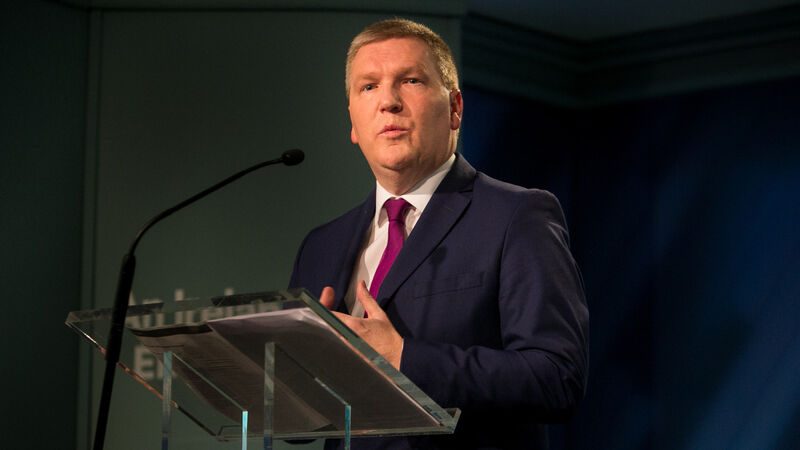Doubts emerge about viability of new public sector pay deal

Fresh doubt is emerging within Cabinet about the viability of a new public sector pay deal due to be negotiated in the coming weeks.
Public Expenditure Minister Michael McGrath has told the he would prefer a deal to be negotiated, but others in Cabinet worry about the “dangerous signal” such a deal would send at a time of major job losses and recession on foot of the Covid-19 pandemic.
The current pay deal is due to come to an end in October with another 2% pay increase for 300,000 public sector workers, the sixth increase since January 2018.
There are suggestions emerging that with the Government borrowing €30 billion this year, any new pay deal would have to involve a pay freeze for a period, of possibly up to a year, with an agreed roadmap for pay increases thereafter.
While the Government’s stated position is to enter into a new deal, ministers are expressing concern about such a development.
“I believe the aim should be to agree a new public service pay deal if it is possible to do so. I don't for a moment underestimate the challenge in agreeing a new deal, given the really difficult economic circumstances we are in as a result of the impact of the virus,” said Mr McGrath.
“However, I also believe the certainty and stability that a new deal on public sector pay would bring could be an important ingredient in the recovery of our economy.
"There will be initial discussions at official level in the weeks ahead and I will keep Cabinet fully informed as things develop.
“The current pay deal is in place until the end of the year, and the Government has committed to honouring it,” he said.
Mr McGrath would not be drawn on what shape a new deal would take, but behind the scenes, tensions are mounting over what will replace the current deal.
Sources have indicated that a pay freeze for public servants for the opening period of a new three-year deal is said to be “quite likely” given where the country is economically.
Other ministers have expressed fears about entering into a new deal involving pay increases at a time when thousands have lost their jobs and businesses have gone to the wall.
Some Cabinet members have said a deal is preferable “but not at all costs” and managing expectations will be difficult.
“There are legacy issues that will need to be addressed before any new arrangement is likely," said one minister. "But while a deal which guarantees industrial peace is an outcome we would like, it cannot be at all costs. This will be very difficult to deliver upon."
Another minister warned of a reopening of the public-versus-private sectoral tensions which surfaced during the last crash when the then-government negotiated the controversial Croke Park deal while more than 250,000 people lost their jobs.
“The benefits of a deal are obvious. There is a lot to be said for industrial peace, but we are borrowing €30bn this year to keep the lights on," said one minister.
"There is a real danger such a deal would repeat the deeply divisive row between the public sector and private sectors we had 10 years ago."
On taking office, Mr McGrath met with a delegation from the Irish Congress of Trade Unions and initial “tyre-kicking” discussions are likely at official level in the coming weeks.
While any deal would need to be factored into the budget-day numbers in October, senior sources have suggested that any potential deal is unlikely to be finalised before then.
Under the current deal, pay for public servants was increased by 1% in January 2018 and by another 1% in October of that year.
In January 2019, salaries of up to €30,000 were increased again by 1%. In September last year, all salaries were increased by a further 1.75% and then those up to €32,000 by a further 0.5% this January.
The final 2% increase for all public servants will kick in from October 1, regardless of performance.





